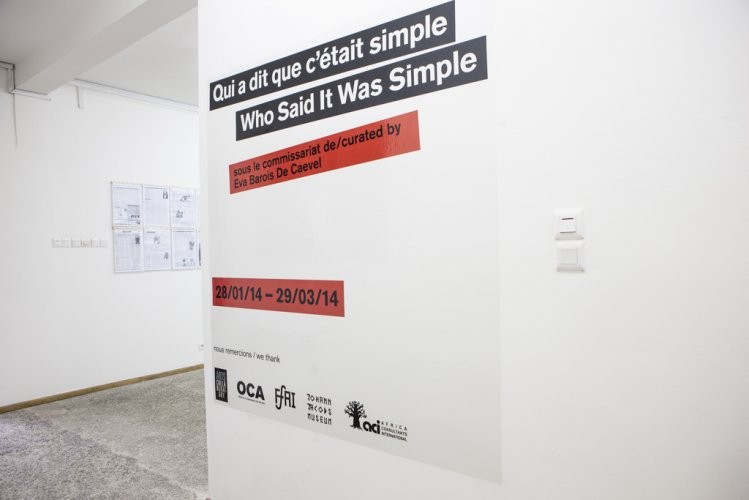Who Said It Was Simple
28 Jan - 29 Mar 2014
WHO SAID IT WAS SIMPLE / QUI A DIT QUE C’ÉTAIT SIMPLE
28 January - 29 March 2014
Who Said It Was Simple* marks the beginning of our year long program dedicated to Personal Liberties.We will look at their perceptions and restrictions. The program will offer exhibitions, seminars, screenings, laboratories and produce new knowledge for a final publication. Who Said It Was Simple, the first act of this set of activities, curated by Eva Barois De Caevel, focuses on news media as a basis to question how minorities or expressions in the margins are treated in Senegal and Africa today.
Who Said It Was Simple is an open critical platform. An abundant documentation including news clips, audio and video material as well as mappings from various sources builds the content of the exhibition.
In presenting this large research we want to discuss difference, minority and margins with an emphasis on sexuality. The exhibition also raises a more crucial question: how to defend human rights and provide the ground for respect and dignity when concepts of personal liberties are determined by a complex legacy as well as by contemporary forms of social conditioning?
* The title is borrowed from a poem by the African-American writer and activist Audre Lorde (1934 -1992). The work of this important figure addresses discrimination, marginalization and sexuality through theoretical essays and poetry.
28 January - 29 March 2014
Who Said It Was Simple* marks the beginning of our year long program dedicated to Personal Liberties.We will look at their perceptions and restrictions. The program will offer exhibitions, seminars, screenings, laboratories and produce new knowledge for a final publication. Who Said It Was Simple, the first act of this set of activities, curated by Eva Barois De Caevel, focuses on news media as a basis to question how minorities or expressions in the margins are treated in Senegal and Africa today.
Who Said It Was Simple is an open critical platform. An abundant documentation including news clips, audio and video material as well as mappings from various sources builds the content of the exhibition.
In presenting this large research we want to discuss difference, minority and margins with an emphasis on sexuality. The exhibition also raises a more crucial question: how to defend human rights and provide the ground for respect and dignity when concepts of personal liberties are determined by a complex legacy as well as by contemporary forms of social conditioning?
* The title is borrowed from a poem by the African-American writer and activist Audre Lorde (1934 -1992). The work of this important figure addresses discrimination, marginalization and sexuality through theoretical essays and poetry.

